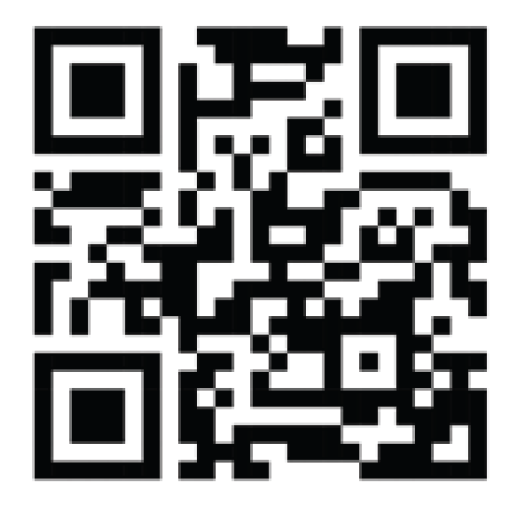988 has now been designated as the 3-digit calling code routing to the National Suicide Prevention Hotline.
If you or someone you know needs support now, call or text 988 or scan the QR code.
 Regional Hospice and Home Care of Western Connecticut professionally facilitates a regular support group called Survivors of Suicide Loss. It meets twice per month. You may call Sherry Renne to register at 203-702-7421. This group helps survivors connect with others who are coping with the death of a loved one from suicide. If you would like to post this as well, you would be helping us get the word out to the community that we are here to help those who have lost a loved one to suicide.
Regional Hospice and Home Care of Western Connecticut professionally facilitates a regular support group called Survivors of Suicide Loss. It meets twice per month. You may call Sherry Renne to register at 203-702-7421. This group helps survivors connect with others who are coping with the death of a loved one from suicide. If you would like to post this as well, you would be helping us get the word out to the community that we are here to help those who have lost a loved one to suicide.
 Recognizing and Addressing Depression Presenting as Anger provides another perspective from which to view depression. Anger can often be expressed inwardly. Learning how to cope with anger caused by depression is as much a benefit to those who may be on the receiving end of an anger attack as it is to the individual.
Recognizing and Addressing Depression Presenting as Anger provides another perspective from which to view depression. Anger can often be expressed inwardly. Learning how to cope with anger caused by depression is as much a benefit to those who may be on the receiving end of an anger attack as it is to the individual.
The American Foundation for Suicide Prevention (AFSP) 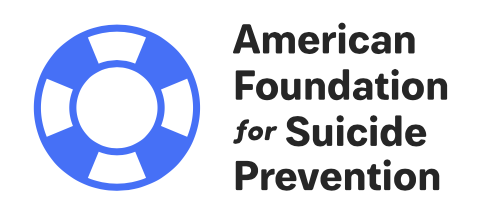
is dedicated to saving lives and bringing hope to those affected by suicide. AFSP creates a culture that’s smart about mental health by engaging in the following core strategies:
- Funding scientific research
- Educating the public about mental health and suicide prevention
- Advocating for public policies in mental health and suicide prevention
- Supporting survivors of suicide loss and those affected by suicide in our mission
 The U.S. Department of Health and Human Service’s Substance Abuse Mental Health Service Administration provides information on mental health issues, referrals to local mental health resources, and free publications on mental health illnesses and issues.
The U.S. Department of Health and Human Service’s Substance Abuse Mental Health Service Administration provides information on mental health issues, referrals to local mental health resources, and free publications on mental health illnesses and issues.
Mental Health America offers online screening tools for a variety of  mental health conditions, including depression, anxiety, eating disorders and more. Following screening, you will be provided with information, resources and tools to help you understand and improve your mental health.
mental health conditions, including depression, anxiety, eating disorders and more. Following screening, you will be provided with information, resources and tools to help you understand and improve your mental health.
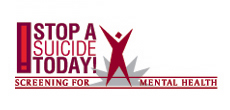 Stop a Suicide, Today is a program of the Suicide Education and Research Division of Screening for Mental Health. It teaches you how to recognize the signs of suicide in family members, friends and co-workers, and empowers you to make a difference in the lives of your loved ones. It emphasizes the relationship between suicide and mental illness and the notion that a key step in reducing suicide is to get those in need into mental health treatment.
Stop a Suicide, Today is a program of the Suicide Education and Research Division of Screening for Mental Health. It teaches you how to recognize the signs of suicide in family members, friends and co-workers, and empowers you to make a difference in the lives of your loved ones. It emphasizes the relationship between suicide and mental illness and the notion that a key step in reducing suicide is to get those in need into mental health treatment.
 The Suicide Prevention Resource Center has 490 web pages and 250 library resources on suicide prevention information and developing suicide prevention programs. The site includes individual state suicide prevention pages, news and events, an online library, training, and links to other web sites.
The Suicide Prevention Resource Center has 490 web pages and 250 library resources on suicide prevention information and developing suicide prevention programs. The site includes individual state suicide prevention pages, news and events, an online library, training, and links to other web sites.
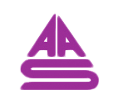 The American Association of Suicidology promotes research, public awareness programs, public education, and training for professionals and volunteers with the goal of understanding and preventing suicide. AAS serves as a national clearinghouse for information on suicide.
The American Association of Suicidology promotes research, public awareness programs, public education, and training for professionals and volunteers with the goal of understanding and preventing suicide. AAS serves as a national clearinghouse for information on suicide.
The Yellow Ribbon website has many great links that can help someone who is suicidal or knows someone who is. It also provides resources for people of all ages in how to identify depression as well as steps in how to treat it.
who is suicidal or knows someone who is. It also provides resources for people of all ages in how to identify depression as well as steps in how to treat it.
 Families who work together are best able to recognize and cope with depressive disorders. Families for Depression Awareness helps caregivers and people with depressive disorders understand the conditions and share issues. Our website offers family profiles, information about depression, medical help, books, links and other helpful tools for families with questions and concerns about mental health issues.
Families who work together are best able to recognize and cope with depressive disorders. Families for Depression Awareness helps caregivers and people with depressive disorders understand the conditions and share issues. Our website offers family profiles, information about depression, medical help, books, links and other helpful tools for families with questions and concerns about mental health issues.
Coping for Survivors
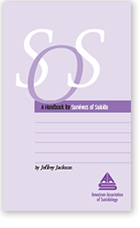 A Handbook for Survivors of Suicide by Jeffrey Jackson is a very helpful and compassionate guide for those grieving the loss of loved ones to suicide. Click here to download. The Dougy Center of The National Center for Grieving Children & Families Provides information and support for children and teens who are grieving the death a loved one. It also provides a directory of programs in Massachusetts and other states that help grieving children, teens and their families. Helping Teens Cope with Death from The Dougy Center can also be purchased through Amazon. This book gives helpful information to parents, teachers, clergy, or friends to better understand teenagers grief. The Compassionate Friends Support for parents and siblings who have experienced the death of a child, brother, or sister. Sponsors support groups, newsletters, and on-line support groups throughout the country, as well as an annual national conference for bereaved families. This website for the American Foundation for Suicide Prevention contains information about suicide and depression and helpful information on coping with loss by suicide. Information on helping survivors can be found by clicking on Surviving Suicide Loss, then Coping with Suicide Loss, and then Helping Friends and Family. The American Foundation for Suicide Prevention is dedicated to leveraging grassroots support among suicide survivors and others to advance public policies that help prevent suicide. Their goal is to create a way for survivors of suicide – those who have lost someone to suicide – to transform their grief into positive action to prevent future tragedies. Heartbeat, a website for those who have lost a loved one to suicide, provides peer support.
A Handbook for Survivors of Suicide by Jeffrey Jackson is a very helpful and compassionate guide for those grieving the loss of loved ones to suicide. Click here to download. The Dougy Center of The National Center for Grieving Children & Families Provides information and support for children and teens who are grieving the death a loved one. It also provides a directory of programs in Massachusetts and other states that help grieving children, teens and their families. Helping Teens Cope with Death from The Dougy Center can also be purchased through Amazon. This book gives helpful information to parents, teachers, clergy, or friends to better understand teenagers grief. The Compassionate Friends Support for parents and siblings who have experienced the death of a child, brother, or sister. Sponsors support groups, newsletters, and on-line support groups throughout the country, as well as an annual national conference for bereaved families. This website for the American Foundation for Suicide Prevention contains information about suicide and depression and helpful information on coping with loss by suicide. Information on helping survivors can be found by clicking on Surviving Suicide Loss, then Coping with Suicide Loss, and then Helping Friends and Family. The American Foundation for Suicide Prevention is dedicated to leveraging grassroots support among suicide survivors and others to advance public policies that help prevent suicide. Their goal is to create a way for survivors of suicide – those who have lost someone to suicide – to transform their grief into positive action to prevent future tragedies. Heartbeat, a website for those who have lost a loved one to suicide, provides peer support.
Mental Health – High School Students
Mental Health – College Students
Campus Blues: Mental Health Awareness for College Students contains information about common problems in college, including mental health, and provides a forum for college students. ULifeline is the online resource center for the Jed Foundation for college student mental health and emotional wellbeing. Active Minds develops and supports student –run mental health awareness, education and advocacy groups. Contains fact sheets on mental illness and information about starting an Active Minds Chapter.
Mental Health – Elderly
The National Coalition on Mental Health and Aging provides resources on issues including COVID-19, anxiety, depression, elder abuse, mental wellness and more.
Drugs/Alcohol
The Al-Anon-Alateen groups are a fellowship of relatives and friends of alcoholics who share their experience, strength and hope, in order to solve their common problems. Meetings are free, anonymous and confidential. Their primary purpose is to help families of alcoholics based on the belief that alcoholism is a family illness and that changed attitudes can aid recovery. Alcoholics Anonymous website provides information on meetings. AA provides self-help groups for alcoholics. Sameem Associates, located in Newton, MA 617-964-1060 Sameen is an outpatient treatment and consultation program treating the addictions, adolescents, and families. The Trevor Project is an informational and creative way to tell the public about suicide and what to look for. Stop Bullying.gov – Kids is a kid-friendly resource about bullying and how to put an end to it.
Foundations and Fundraisers
Megan Meier Foundation– Shortly after Megan took her life in 2006, her mother, Tina Meier, began speaking around the nation to combat bullying, specifically cyber bullying.


